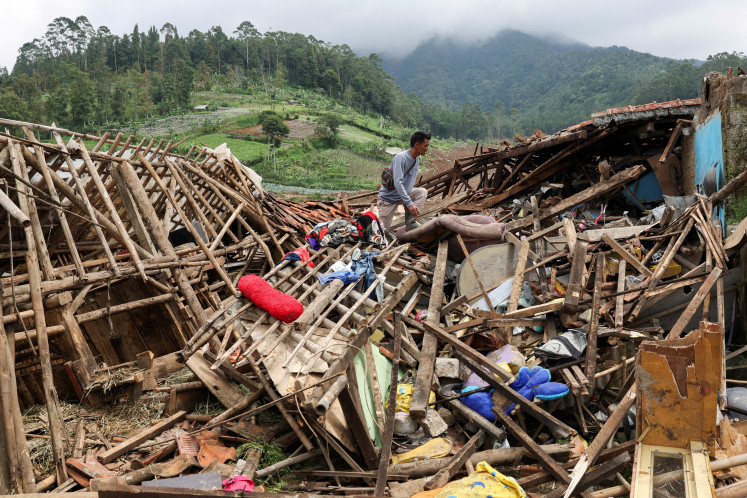Popular Reads
Top Results
Can't find what you're looking for?
View all search resultsPopular Reads
Top Results
Can't find what you're looking for?
View all search resultsRI likely to sit on UN human rights council
Indonesia’s ASEAN chairmanship will boost its chances of being elected as a member of the United Nations Human Rights Council, despite past and ongoing human rights violations in the world’s third-largest democracy
Change text size
Gift Premium Articles
to Anyone
I
ndonesia’s ASEAN chairmanship will boost its chances of being elected as a member of the United Nations Human Rights Council, despite past and ongoing human rights violations in the world’s third-largest democracy.
Indonesia — which chaired and was a member of the Council in 2006 and between 2007 and 2010, respectively — is running as a candidate for Council membership, which will be decided in a UN plenary meeting in New York next Friday.
“I believe Indonesia’s chairmanship in ASEAN will be a factor for countries voting for Indonesia,” Foreign Ministry director for human rights and humanitarian affairs Muhammad Anshor said at a discussion on Thursday.
“It’s because many hopes have been cast on Indonesia’s chairmanship, particularly on democracy and human rights issues.”
But it is not easy to detect which country would vote for Indonesia, because individual members would have their own vote, he said.
Indonesia and the Phillipines are the two ASEAN countries running for the candidacy. Syria and India are the other Asian candidates.
Due to domestic turbulence, Syria agreed on Thursday to swap its candidacy with Kuwait.
All four countries will likely become members of the council, as there are four seats open in the Asian group.
On Thursday, Indonesia commemorated the falling of the authoritarian regime of late former president Soeharto in 1998.
Around and during that year, a number of university students were killed by the Indonesian Military during nationwide protests, and a number of activists were made to disappear “by force”. The cases of those events have yet to conclude.
Last year, military officials reportedly tortured civilians in Papua. Videos of the torture went public, drawing domestic and international anger over the human rights abuse in Indonesia.
But President Susilo Bambang Yudhoyono — a retired Army general — later claimed that there were “no gross human rights violations” committed by the military during his presidency.
The episodes of torture and killing of Ahmadiyah followers by hard-line Islamic groups in the name of defending Islamic teachings from defamation have also increased since last year. Some believe the National Police allowed those episodes to happen.
The Philippines witnessed the massacre of 33 journalists in 2009 alone. The development of this case is also moving at a snail’s pace.
National Commission on Human Rights deputy chairman on external affairs, Nur Kholis, said the trend of human rights violations had increased in the past three years, with around 4,800 cases filed with the commission in 2008, some 5,000 in 2009 and more than 6,000 in 2010.
“There were 1,287 complaints of human rights violations [filed with the commission] at the National Police in 2010 — the highest on record that year — followed by human rights violations by regional administrations,” he said.
Human Rights Working Group executive director Rafendi Djamin said he supported Indonesia’s candidacy for the Council.










